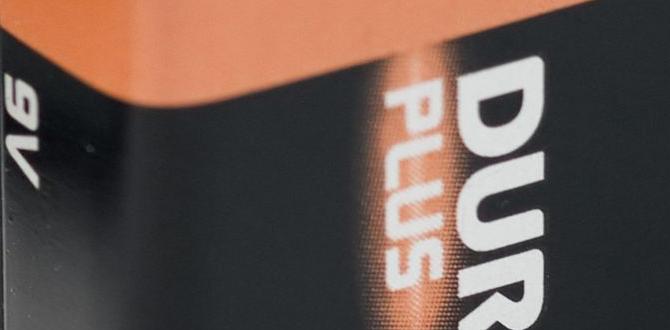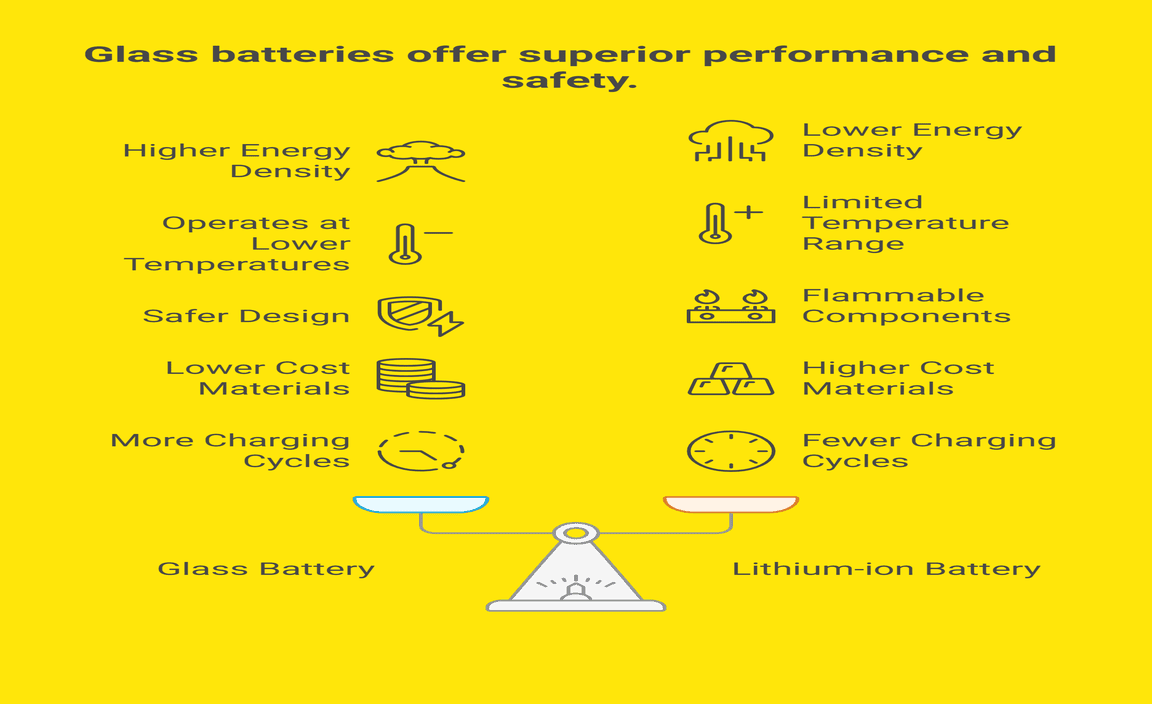Quick Summary: A failing hybrid battery in your 2007 Toyota Camry can be a frustrating issue. This guide provides clear, actionable steps to diagnose, understand, and address hybrid battery problems, ensuring your Camry runs smoothly and reliably. Learn how to identify symptoms and what your repair options are.
Hybrid Battery for 2007 Toyota Camry: Essential Fix
Is your 2007 Toyota Camry hybrid acting a bit sluggish? Maybe you’re noticing some unusual warning lights on your dashboard. These can often be signs that the hybrid battery, the heart of your Camry’s electric power system, needs attention. It’s a common concern for owners of older hybrid vehicles, but don’t worry! We’re here to break down exactly what’s going on, what it means for you, and the best ways to get your Camry back to its peak performance. This guide will walk you through everything you need to know, making the process clear and manageable, even if you’re new to hybrid car care.
Think of your hybrid battery like the rechargeable battery in your phone, but much, much bigger and more complex. Over time, like any battery, it can lose its ability to hold a full charge or deliver power efficiently. For a 2007 Toyota Camry, this is a natural part of its lifespan. Understanding these signs is the first step to keeping your car running reliably and efficiently. We’ll cover the common symptoms, how to get a diagnosis, and what your options are for fixing it.
Understanding Your 2007 Toyota Camry’s Hybrid Battery
Your 2007 Toyota Camry Hybrid uses a sophisticated system that combines a gasoline engine with an electric motor, powered by a high-voltage hybrid battery. This battery is crucial for assisting the engine, providing electric-only driving at low speeds, and capturing energy during braking (regenerative braking). This means it works hard, powering a significant part of your car’s operation.
The hybrid battery pack is made up of many smaller battery cells, all working together. When these cells start to degrade, it impacts the entire pack’s performance. This degradation can be caused by a number of factors, including age, mileage, and extreme driving conditions. Toyota designed these batteries to last a long time, but eventually, they will need service or replacement.
Common Symptoms of a Failing Hybrid Battery
Spotting a failing hybrid battery early can save you future headaches. Here are some common signs to look out for:
- Decreased Fuel Economy: If you notice your Camry isn’t achieving the miles per gallon it used to, even with careful driving, the hybrid battery might be struggling to assist the engine effectively.
- Reduced Electric-Only Driving: The ability to drive on pure electricity, especially at lower speeds or when starting from a stop, will likely diminish as the battery weakens.
- Warning Lights on the Dashboard: This is often the most obvious sign. You might see a “Check Hybrid System” or “Battery” warning light. Sometimes, the check engine light can also illuminate.
- Loss of Power or Acceleration: When the battery can’t provide adequate power, the car might feel less responsive when you press the accelerator.
- Engine Running More Often: Because the battery isn’t helping as much, the gasoline engine might kick in more frequently to compensate, even in situations where it normally wouldn’t.
- Strange Noises or Smells: While less common, distinct odors or unusual sounds coming from the undercarriage or rear of the vehicle could indicate a severe battery issue.
It’s important to remember that some of these symptoms could be related to other car problems. That’s why a proper diagnosis is key.
Diagnosing Hybrid Battery Issues
When you suspect your 2007 Toyota Camry’s hybrid battery is failing, the first step is to confirm it. This isn’t usually a DIY job because hybrid systems operate at high voltages, which can be dangerous if handled improperly. Professional diagnosis is highly recommended.
Why Professional Diagnosis is Crucial
Hybrid vehicles contain high-voltage components. Working with these systems without the proper training and safety equipment can lead to severe electrical shock. Automotive technicians specializing in hybrid vehicles have the right tools and knowledge to safely assess the battery pack.
A technician will use a diagnostic scanner that can communicate with your Camry’s hybrid control module. This scanner can read error codes (DTCs) related to the battery system and provide real-time data on battery cell performance, voltage, and temperature. They can also perform a battery load test to check its overall health and capacity.
For more information on hybrid systems and their maintenance, the U.S. Department of Energy provides valuable resources often found on sites like energy.gov, which explains the fundamentals of these advanced vehicles.
Understanding Diagnostic Trouble Codes (DTCs)
When a hybrid system fault is detected, the car’s computer stores a specific code. Some common DTCs related to hybrid batteries include:
| Diagnostic Trouble Code (DTC) | Potential Meaning | Indication |
|---|---|---|
| P0A80 | Battery Energy Control Module (BECM) Malfunction / Battery Pack Performance Issues | Often indicates one or more battery cells are underperforming or there’s a significant imbalance within the pack. |
| P0A78 | Hybrid Battery Pack Voltage Sensor Circuit Malfunction | Suggests a problem with the sensors that monitor the battery’s voltage. |
| P0A81 | Hybrid Battery Pack Cooling System Performance | Indicates an issue with the system that keeps the battery at an optimal temperature, which is vital for its longevity. |
| P0AA6 | Hybrid Battery System Isolation Fault | A more serious code indicating a loss of insulation, potentially a safety concern. |
Always rely on a professional to interpret these codes and perform the necessary tests. These codes are a starting point for diagnosis, not a definitive answer on their own.
Repair and Replacement Options
Once a hybrid battery issue is confirmed for your 2007 Toyota Camry, you’ll face decisions about how to address it. Fortunately, you usually have more options than just buying a brand-new battery from the dealership.
1. New Hybrid Battery
Pros:
- Comes with a full manufacturer’s warranty.
- Guaranteed to be at original specifications.
- You get the peace of mind of having a brand-new component.
Cons:
- Typically the most expensive option.
- Can sometimes be difficult to source for older models, or parts may be on backorder.
2. Reconditioned or Remanufactured Hybrid Battery
These batteries have been previously used, then tested, repaired, and rebuilt. Damaged cells are replaced, and the pack is restored to a functional state. Some companies perform this process on individual cells or modules within the pack.
Pros:
- Significantly less expensive than a new battery.
- Often come with a warranty, though it might be shorter than a new one.
- A more environmentally friendly choice as it reuses existing components.
Cons:
- The lifespan might be shorter than a brand-new battery.
- Quality can vary depending on the reconditioning company.
- Warranty terms need to be carefully reviewed.
3. Used Hybrid Battery
This involves purchasing a hybrid battery from a salvage yard or a dismantled vehicle. This is generally the cheapest option.
Pros:
- Lowest upfront cost.
- Can be a quick solution if you need your car back on the road immediately and budget is a major concern.
Cons:
- Highest risk as the battery’s condition is often unknown.
- Usually comes with a very limited or no warranty.
- Lifespan is unpredictable.
4. Module Replacement (Advanced DIY or Specialized Shops)
A hybrid battery pack is made up of many modules. Sometimes, only one or a few of these modules fail. In some cases, if you or a specialized shop has the expertise and tools, it might be possible to replace only the faulty modules. This is an advanced repair and requires significant caution due to high voltage.
Pros:
- Potentially the most cost-effective if only a few modules need replacing and you have access to skilled labor or can do it yourself safely.
- Less waste than replacing the entire pack.
Cons:
- Requires specialized knowledge and tools.
- Safety is a major concern; improper handling can be dangerous.
- Finding exact compatible modules can be challenging.
- There’s no guarantee that other modules won’t fail soon after.
Important Considerations When Choosing:
- Warranty: Always check the warranty details. How long is it? What does it cover? Who handles the warranty claims?
- Installer Reputation: If you’re not doing the work yourself, research the shop’s experience with hybrid battery replacements.
- Cost vs. Value: Consider the total cost of ownership, including potential future repairs, when weighing options.
DIY vs. Professional Hybrid Battery Replacement
Let’s be upfront: Replacing a hybrid battery is not a typical DIY task that most car owners can perform safely in their driveway. The high-voltage system presents significant risks.
Why Professional Installation is Recommended
Safety: The most critical reason is safety. The hybrid battery stores and distributes high-voltage electricity (often over 200 volts). Accidental contact with this voltage can cause severe injury or death. Specialized training and safety equipment in accordance with standards like those from the National Fire Protection Association (NFPA) (though not directly for auto repair, their safety principles highlight high-voltage risks) are essential.
Specialized Tools: Hybrid battery replacement requires specific tools designed to handle the high-voltage connectors, battery modules, and safety disconnects. Standard automotive tools are often insufficient and can be dangerous.
Technical Knowledge: Technicians understand the intricate process of safely disconnecting the old battery, ensuring no residual charge is present, and correctly installing and connecting the new or remanufactured unit. They also know how to safely discharge the system.
Warranty Requirements: Many battery manufacturers and reconditioners require professional installation to validate their warranty. DIY installation might void the warranty on your new or reconditioned battery.
If You Choose a Professional
When you take your 2007 Toyota Camry in for hybrid battery service:
- Find a Hybrid Specialist: Look for mechanics or shops that specifically advertise hybrid vehicle repair or have certified hybrid technician training. A general mechanic might not have the specialized knowledge.
- Get Multiple Quotes: Like any major repair, get estimates from a few reputable shops. Compare not just the price but also what’s included (parts, labor, warranty).
- Ask About the Battery: Inquire about the type of battery being installed (new, reconditioned, specific brand) and the warranty associated with it.
- Understand the Warranty: Make sure you get a written warranty clearly outlining the terms and duration of coverage for both the battery and the labor.
Maintaining Your Hybrid Battery for Longevity
While you can’t entirely prevent battery degradation over time, certain practices can help maximize the lifespan of your 2007 Toyota Camry’s hybrid battery and the overall health of your hybrid system.
- Drive Smoothly: Frequent hard acceleration and hard braking put extra stress on the battery. Smooth, gradual acceleration maximizes electric assist and regenerative braking efficiency.
- Avoid Extreme Temperatures (When Possible): While your Camry has a cooling system for the battery, prolonged exposure to parked in extreme heat or cold can accelerate degradation. If possible, park in a shaded or cooler area when not in use, especially in very hot climates.
- Regular Maintenance: Keep up with your car’s regular maintenance schedule. This includes checking all fluid levels, tire pressures, and ensuring the engine is running optimally. A well-maintained gasoline engine and cooling system help the hybrid system function better.
- Check Battery Cooling System: The hybrid battery has its own ventilation and cooling system to prevent overheating. Ensure the air intake vents for this system are kept clear of debris (leaves, dirt, snow). A clogged vent can cause the battery to overheat, leading to premature failure. You can often find these vents on the rear parcel shelf or beneath the car.
- Don’t Ignore Warning Lights: If any warning lights related to the hybrid system appear, get them checked out promptly. Addressing minor issues early can prevent them from escalating into major problems.
These maintenance tips are generally applicable to many aspects of car care, much like ensuring your phone charger and power bank are used within their operational limits to preserve battery health.
Hybrid Battery Performance vs. Other Battery Types
It’s easy to get confused with all the different types of batteries out there. Your 2007 Toyota Camry’s hybrid battery is a specialized, high-voltage unit, very different from a standard 12V car battery, a phone battery, or even a power bank.
| Battery Type | Primary Use | Voltage (Typical) | Key Characteristic | Lifespan Factor |
|---|---|---|---|---|
| 12V Car Battery | Starting the engine, powering accessories (lights, radio) | 12 volts | High burst of current for starting | 3-5 years; sensitive to extreme temperatures/deep discharge |
| Hybrid Battery (e.g., 2007 Camry) | Propelling the car at low speeds, assisting gasoline engine, regenerative braking | 200-300 volts (or higher) | Longer life, deep charge/discharge cycles, high energy density | 8-15 years/100,000-200,000 miles (varies greatly); sensitive to heat and high cycles |
| Phone/Laptop Battery (Lithium-Ion) | Powering portable electronics | 3.7-19 volts (depending on device) | High energy density, rechargeable | 2-3 years; degrades with charge cycles and heat |
| Power Bank | Recharging portable electronics on the go | 3.7-5 volts (internal) | Portable energy storage | Similar to phone battery; depends on usage and quality |
As you can see, the hybrid battery operates at a much higher voltage and is designed for a different purpose: a continuous supply of power for vehicle propulsion and assistance, rather than a quick start or portable power. This means its failure mode and repair are also distinct.
Frequently Asked Questions (FAQ)
Q1: How long should a hybrid battery in a 2007 Toyota Camry typically last?
A1: For a 2007 Toyota Camry hybrid, the original hybrid battery was designed to last approximately 100,000 to 200,000 miles, or about 8 to 15 years. However, this can vary based on driving habits, climate, and maintenance. Many are still performing well well beyond these estimates.
Q2: Can I diagnose a hybrid battery issue myself?
A2: It is strongly advised against attempting a full diagnosis or any repairs on the hybrid battery yourself. High-voltage systems are extremely dangerous and require specialized training, tools, and safety equipment. A professional technician is essential for safety and accuracy.
Q3: What happens if I continue to drive with a failing hybrid battery?
A3: Continuing to drive with a failing hybrid battery can lead to reduced fuel efficiency, a loss of hybrid functionality (meaning you’ll primarily rely on the gasoline engine), and potentially disable the vehicle if the failure is severe. Warning lights will likely persist, and you may experience a noticeable drop in performance.
Q4: Are remanufactured hybrid batteries reliable?
A4: Remanufactured hybrid batteries can be a reliable and cost-effective option. They have been thoroughly tested and rebuilt with new or refurbished components. Look for reputable companies that offer a solid warranty to ensure peace of mind.
Q5: Where is the hybrid battery located in a 2007 Toyota Camry?
A5: The hybrid



